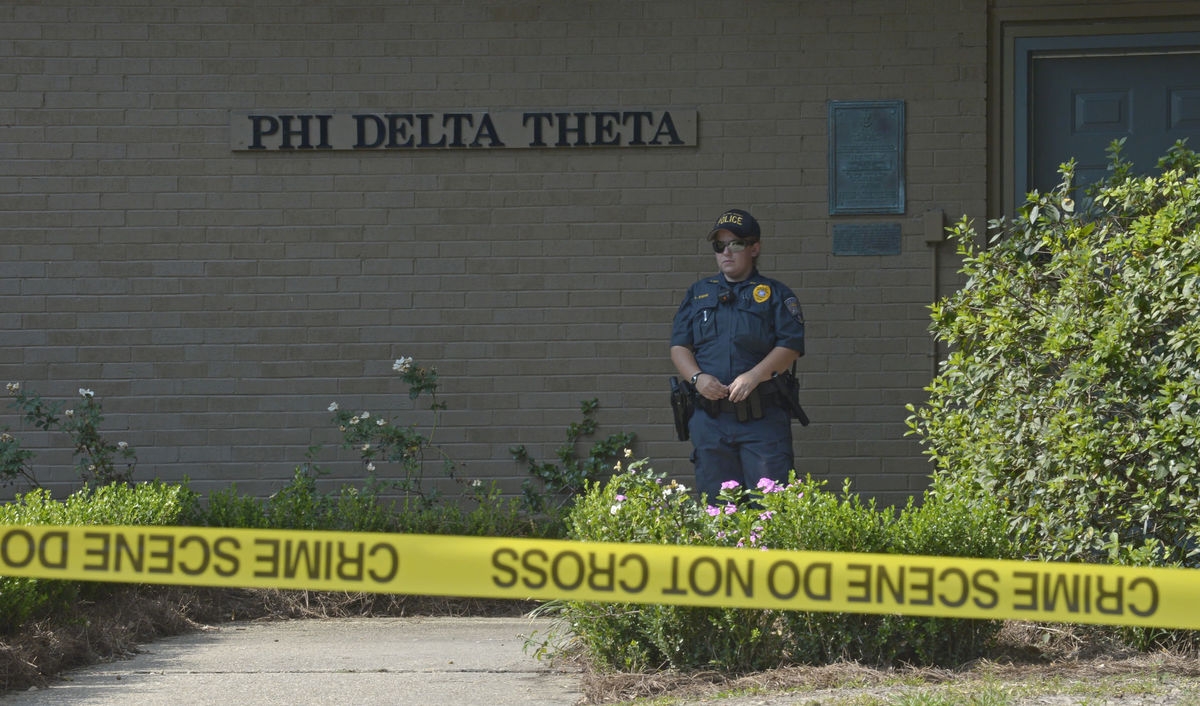
By Vince Gullo | Staff Columnist
10/19/2017
What ever happened to good old keg stands and toga parties? Just recently, a freshman at Louisiana State University was found dead on a couch at the university’s Phi Delta Theta fraternity chapter house. As tragic as the event was, it unfortunately is not surprising. The fraternity hazing death has become an unfortunate expectation of every starting semester. It has no longer become an issue of if, but of when and where.
The aspiring fraternity member, 18-year-old Maxwell Gruber, was pronounced dead at a local hospital with a blood alcohol content of 0.496 percent, more than 6 times the legal driving limit. Gruber reached this state of inebriation during a fraternity hazing ritual called “bible study,” where pledges, or frat-hopefuls, were forced to answer various questions involving Phi Delta Theta and Greek Life in general. Wrong answers resulted in the pledges being forced to take a swig of alcohol. Gruber apparently kept messing up the Greek Alphabet and was met with harassment from hazing event leader Matthew Naquin. Naquin, although only one year older than Gruber, had complete control over his actions, and made him drink until he passed out.
Who could blame Gruber for messing up anyway? The Greek alphabet is confusing and pretty stupid (except for, like, four cool letters). The whole “knowledge of the fraternity” thing is asinine.
Why would one spend time studying the way that Jimmy from Alpha Chai Tea Latte clips his toenails when they could be studying something actually useful that they’re learning in real classes? The stupidity of this pseudo-dictatorial dynamic is painful, and the fact that people are dying from these events is even worse. Incidents like this are unfortunately not uncommon. Just this May, a student was killed during a rush event at Penn State.
States and schools have attempted to come down hard on hazing. In Louisiana, by law, any student involved in a hazing incident will immediately be subject to expulsion. On almost every campus, colleges take pride in having a “no hazing” Greek community, and there are harsh punishments in place for those who fail to abide by their code of conduct. These rules are absolutely necessary, but schools can’t control what happens behind closed doors. Short of eliminating all Greek life, which is an unreasonable on many levels, not much can be done to prevent these incidents. How can you have any control over something you can’t see or even predict? To me, there seems to be no clear answer from an administrative standpoint.
Is one’s search for brotherhood worth losing a life over? And why would anyone feel that their institution is so prestigious that they feel the need to put an aspiring member in harm’s way?
Here at Duquesne, Greek Life is huge. Students of virtually every background and interest group participate in Greek Life. With Greek Life comes philanthropy opportunities, lifelong friendships and a social experience that cannot be encountered at any other stage of life. But a reputation of elitism, hazing and overall bad behavior can deter many from joining and has even led to the discontinuation of chapters here at Duquesne. Just a couple of years ago, Duquesne’s chapter of Alpha Tau Omega was dis-chaptered after allegations of hazing, drug use and other less-than-savory activities.
As a freshman with potential interest in Greek Life, I can’t help but feel some level of concern and anxiety about “rushing.” What happened at LSU, Penn State and countless other schools was nothing more than an accident, and that’s the scary part. These events could happen anywhere if not careful. And the consequences are very real. Besides for obviously dying, members can face criminal charges and expulsion. At Penn State, eight students were charged with voluntary manslaughter after their incident. Regardless of how many pairs of Sperry’s and pastel-colored shorts I own, I’m not signing up to die OR go to jail.





Schools have strict policies for this but are they enforcing them? We read about kids dying (my son, McCrae Williams died Sept 11th at Lafayette) but we never read about the schools following through on suspensions. Are schools actually following through and suspending kids? Are schools taking any action to improve education? It seems to me that in most of the cases I’ve read kids were “backpacked”. Many schools do have some sort of education but how does the practice of backpacking still happen? Seems if they simplified the education down to this one action they could really reduce the numbers of kids dying. Pick up the phone, not the backpack!